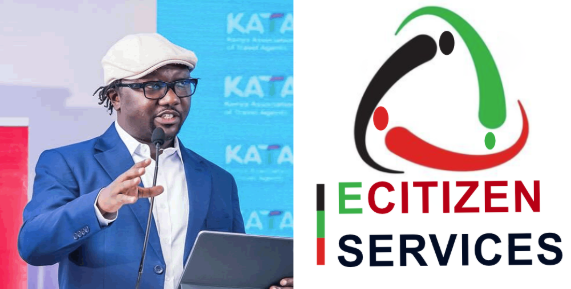How Private Firm Pocketed KSh 1.45 Billion From eCitizen Fees
The private firm behind eCitizen, Webmasters Kenya Ltd, continues to control the digital government services platform and collect convenience fees, despite a 2022 directive from President William Ruto’s administration requiring the system to be handed over to the state.
Auditor-General Nancy Gathungu’s latest report shows that Webmasters and its sister firms pocketed KSh 591.9 million from convenience fees and an additional KSh 857 million in maintenance fees in the financial year ending June 2024, totalling KSh 1.45 billion in earnings.
In November 2022, Treasury Cabinet Secretary Prof Njuguna Ndung’u and ICT Cabinet Secretary Eliud Owalo met Webmasters representatives, relaying President Ruto’s directive for the firm to surrender all rights to eCitizen to the government.
The firm was instructed to cease charging convenience fees, transfer the system’s source code, architecture, and user manuals, and train government staff on operating the platform.
Minutes from the meeting revealed that the directive applied to Pesaflow Ltd and Olive Tree Ltd, Webmasters’ affiliate companies handling payments and messaging services for government transactions.
A structured four-stage handover was planned, with physical setup by January 27, 2023, transfer of system documentation by February 3, 2023, system audit completion by February 24, 2023, and final training by July 13, 2023.
The government was granted the right to inspect the process and later contract Webmasters or another vendor for maintenance under a fixed-term agreement.
Despite the agreements, Webmasters continues to run eCitizen and charge fees, raising concerns over government control and security risks.
The lack of system backup has been flagged as a major vulnerability, with fears that a cyberattack could paralyse government services.
Questions have also been raised about private handling of sensitive citizen data with minimal state oversight.
eCitizen, initially built in 2014 by Webmasters with just 10 services, has since expanded to host thousands of government services, making it a critical national infrastructure.
During the Uhuru Kenyatta administration, a dispute arose over ownership, with government citing contracts and World Bank documents to assert its claim, while Webmasters argued that the platform had evolved beyond its original scope, entitling it to compensation.
A court case was filed by Goldrock Capital, a firm Webmasters had illegally contracted to collect government payments.
Goldrock was removed from the system in 2017, but the legal battle continued, with Webmasters threatening to shut down eCitizen unless it was paid.
In January 2023, Webmasters and Goldrock withdrew their financial claims following pressure from the government.
However, Senator Okiya Omtatah, who had challenged the legality of convenience fees, was forced to file a separate case after the initial suit was withdrawn.
Despite a government-organised eCitizen workshop in Mombasa in April 2023, attended by 62 officials from different agencies, Webmasters remains in control of the system nearly two years after the handover directive.
Webmasters founder James Ayugi previously stated in an interview that the company bills the government between KSh 100 million and KSh 200 million monthly for services.
The revelations from the Auditor-General’s report have reignited concerns over why Webmasters continues to profit from the system and whether government agencies have failed to enforce President Ruto’s directive.
There's no story that cannot be told. We cover the stories that others don't want to be told, we bring you all the news you need. If you have tips, exposes or any story you need to be told bluntly and all queries write to us [email protected] also find us on Telegram

